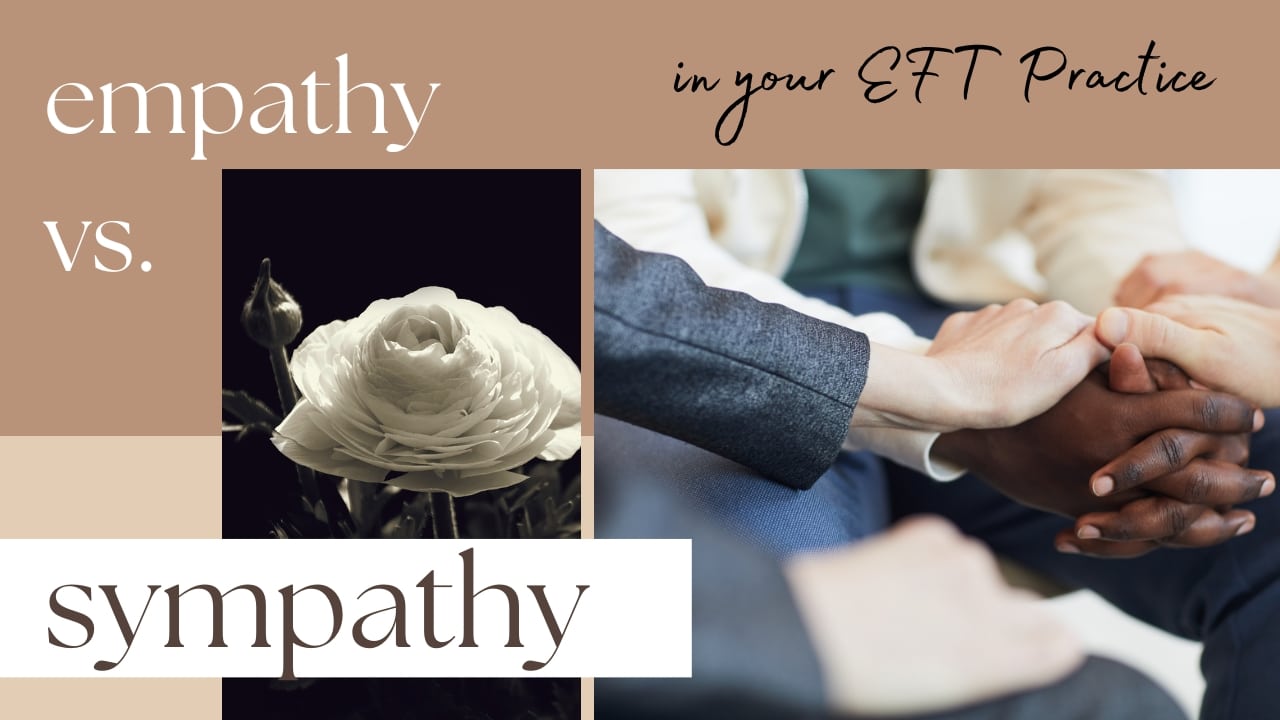
So I think this is one of the great dangers of being an effective EFT practitioner because so often those of us who are called to be healers are overly empathetic.
Because we are empathetic, we are able to put ourselves into the shoes of the other person sitting in front of us and feel.
We feel what they feel.
So that makes us good practitioners, right, like when we can feel what they’re going through, we can really engage in that experience and therefore be able to find the right setup statements, to be able to find exactly what it is that they’re experiencing and feeling in order to dig in and get to the core issue.
The problem with that, however, comes when we are not able to separate ourselves. to be the objective, all-loving observer to enough of a degree that we can, then go home at night and leave it behind. Then we have a problem.
The best-case scenario is if we can experience and project sympathy.
So sympathy is the process of knowing what they’re feeling, but not experiencing it for them. It takes some distancing and some practicing in order to become that.
A person who can be in the experience without going into the experience, if that makes any sense.
But this is the only way that you’ll survive as a practitioner. If you are overly empathetic and you feel it so deeply that you can’t let it go when the session is over, you’ll never survive as a practitioner.
Because it will beat you up.
I used to do it a lot. I used to be really, really bad about it. I would feel everybody’s stuff, and I would be thinking about it when I got home at night. And it can really wear you down.
I have since learned to have some distance with my sessions.
The downside is that sometimes I don’t even remember the session by the time I get home. I have learned how to just let it go to such a degree that I sometimes don’t even remember what we talked about a few hours later.
That bothers me sometimes, especially when I go to see the person the next time and they’re talking about things that I should know, but I just don’t recall because it’s become a kind of skill set to separate myself to that degree.
So the key here is to learn how to have some separation from it. You need to do that.
People talk all the time about tools for protecting yourselves, whether it’s washing your hands with sea salt or taking a shower afterward or whatever. All those things are can be valuable.
But really, the real skill set is to learn how to be sympathetic, not empathetic. And if you can do that, you can see five, 10 clients in a day, well, maybe not 10.
But you can see multiple clients in a day without feeling burnt out. And that’s necessary.
It’s necessary that you do that because so many people need you. And if you can only see one or two people in a day, because you’ve put so much of yourself into a session that you have nothing left after one or two sessions if you can’t help as many people. So it’s a really important skill to develop.
And I hope that just by recognizing the difference, you can start to find ways to develop that.
That difference, OK?
And that is my advice on how to separate empathy from sympathy in your EFT practice.
I hope it helps.
Check out this article on “How to Start a Successful EFT Business.”
Or check out our options in EFT Certification.
Join our email list to keep abreast of all things EFT!
© 2022 Center for EFT Studies – onlineEFTcertification.com
